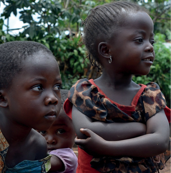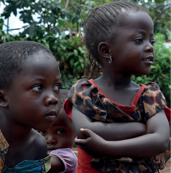- Accueil
- Actes du colloque
- Ritualistic child sexual abuse in post-conflict eastern DRC : factors associated with the phenomenon and implications for social work
Visualisation(s): 590 (0 ULiège)
Téléchargement(s): 0 (0 ULiège)
Ritualistic child sexual abuse in post-conflict eastern DRC : factors associated with the phenomenon and implications for social work

Résumé
Ritualistic child sexual abuse is a critical and under-recognized form of child maltreatment prevailing in developing countries. In post-conflict eastern DRC, children suffer complex forms of ritual based-sexual assault perpetrated with extreme brutality by various individuals and groups. Although DRC has achieved significant milestones towards combatting war-related sexual abuse of women and children, disturbing forms of ritualistic sexual abuse targeting children from specific communities resurge and affect so many victims. This study examines the factors associated with the resurgence of ritualistic child sexual abuse in post-conflict eastern DRC and the implications of such forms of abuse for social work practice and education in a post-war context.
An exploratory research design was used and grounded theory was the main tradition behind the study. The unit of analysis for the study was a household where at least a case of ritualistic sexual abuse of a child was reported. In each selected household the head of the family and the child survivor of the assault were interviewed. Thus semi-structured interviews were conducted with a purposely selected sample of 41 participants, among which 22 primary respondents (household level participants) and 19 key informants. Besides 3 FGDs were conducted in all territories with heterogeneous categories of participants. Data collection was conducted in Kavumu, Kalagane, Mukungwe and Bukavu; in South-Kivu province, eastern DRC.Forms of ritualistic sexual abuse included incest, pedophilia, sexual exploitation, child marriage, child abduction associated with extreme sexual brutality. The abuse was basically sexual and targeted children from any age between 6 months and 12 years. Ritualistic sexual assault of children was based on 3 main determinants. Socioeconomic determinants were all about: Child Poverty, poor parenting, poor housing and unemployment. Political instability-related factors involved IDPs, community militarization, civilian adoption of rape and weak CP mechanisms. The mystical factors involved superstitions such as: healing HIV Aids and other STIs, blood adduction, economic power, invulnerability to shooting on the battles.
In a context of ample impunity and poor empirical data, speculation persisted and sexual abuse of children was far from being curbed.
1






